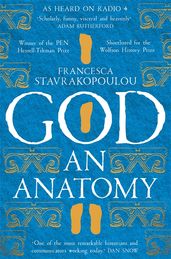Synopsis
Winner of The PEN Hessell-Tiltman Prize
Shortlisted for The Wolfson History Prize
A The Times Books of the Year
A fascinating, surprising and often controversial examination of the real God of the Bible, in all his bodily, uncensored, scandalous forms.
'One of the most remarkable historians and communicators working today' – Dan Snow
Three thousand years ago, in the lands we now call Israel and Palestine, a group of people worshipped a complex pantheon of deities, led by a father god called El. El had seventy children, who were gods in their own right. One of them was a minor storm deity, known as Yahweh. Yahweh had a body, a wife, offspring and colleagues. He fought monsters and mortals. He gorged on food and wine, wrote books, and took walks and naps. But he would become something far larger and far more abstract: the God of the great monotheistic religions.
But as Professor Francesca Stavrakopoulou reveals, God’s cultural DNA stretches back centuries before the Bible was written, and persists in the tics and twitches of our own society, whether we are believers or not. The Bible has shaped ideas about God and religion, but also cultural preferences about human existence and experience; our concept of life and death; attitude to sex and gender; habits of eating and drinking; the understanding of history.
Examining God’s body, from his head to his hands, feet and genitals, she shows how the Western idea of God developed. She explores the places and artefacts that shaped our view of this singular God and the ancient religions and societies of the biblical world. And in doing so she analyses not only the origins of our oldest monotheistic religions, but also the origins of Western culture.
Beautifully written, passionately argued and frequently controversial, God: An Anatomy is cultural history on a grand scale.
'Rivetingly fresh and stunning' – Sunday Times
Details
Reviews
A learned but rollicking journey through every aspect of Yahweh's body. A book that will offend some but delight more.
Rivetingly fresh and stunning . . . I rather like this inexhaustibly powerful, shouting, bearded giant of a God, a fiery, fierce and startlingly “pagan” God, alive to his very fingertips, laughing at human hubris and singing with unbridled joy.
Lively . . . [with] a wealth of scholarly detail and much gusto
Professors of Theology are imagined to be dull, gentle souls. This book, however, is a great rebel shout . . . A book that aims to upend the notion of a cloudy, spiritualised creator . . . instructive, vivid and frequently hilarious.
